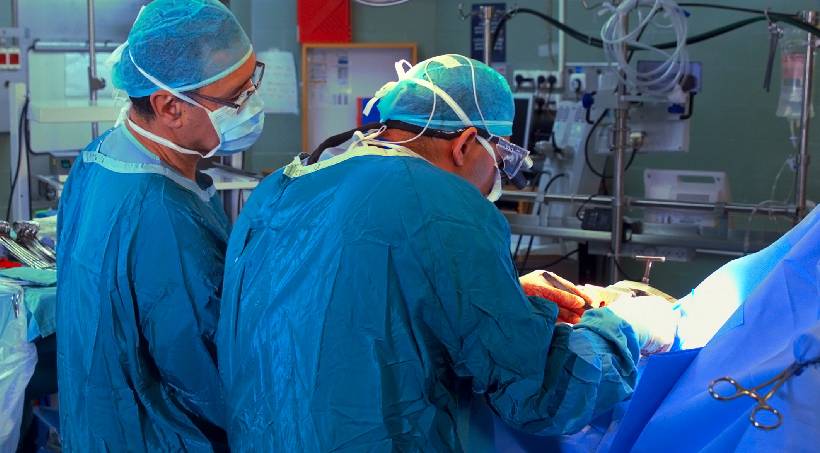
All General Surgery procedures.
General surgery encompasses a wide range of procedures, addressing conditions from appendicitis to hernias. Surgeons perform operations to treat diseases of the gastrointestinal tract, endocrine system, and more. Techniques include minimally invasive surgeries like laparoscopy, promoting quicker recovery times. General surgery plays a crucial role in treating both elective and emergency cases worldwide.
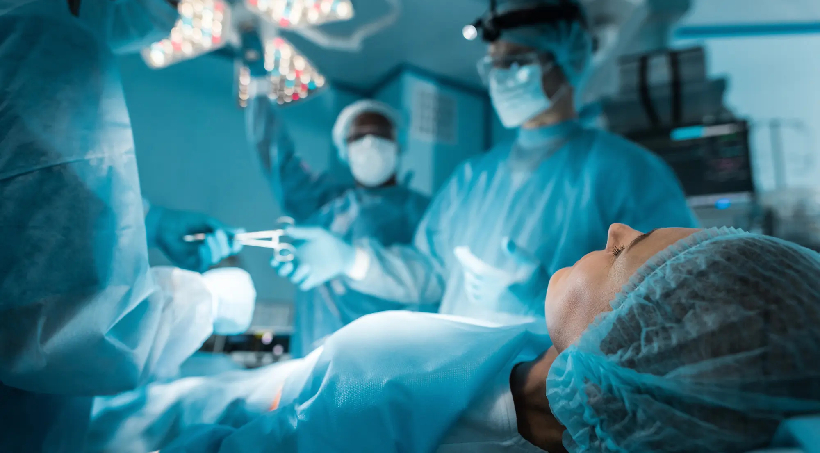
Consulting in Surgical complaints
All Consulting specializes in addressing surgical complaints with expert medical guidance, offering tailored solutions for patient care and recovery. Based on a patient-centered approach, their services aim to ensure comprehensive support through every stage of treatment, emphasizing precision and compassionate care.
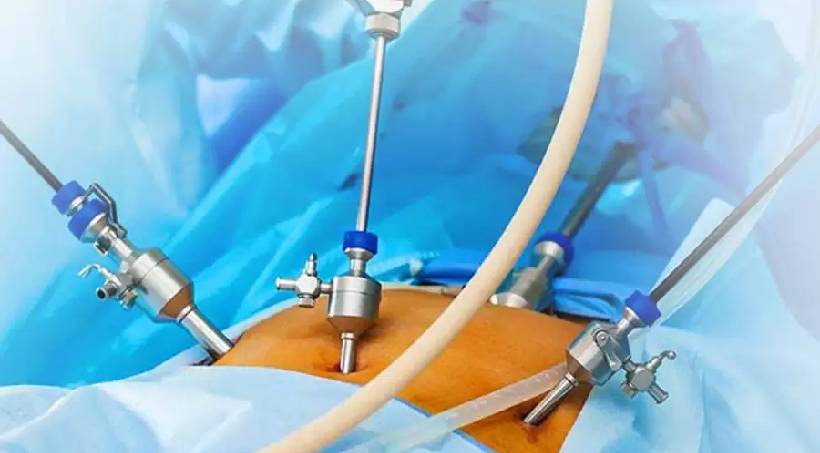
Diagnostic Laparoscopy.
Diagnostic laparoscopy is a minimally invasive surgical procedure used to examine organs inside the abdomen. It helps diagnose conditions such as pelvic pain, infertility issues, and abdominal abnormalities with small incisions and a camera-guided scope. This technique offers quicker recovery times and less post-operative discomfort compared to traditional surgery.
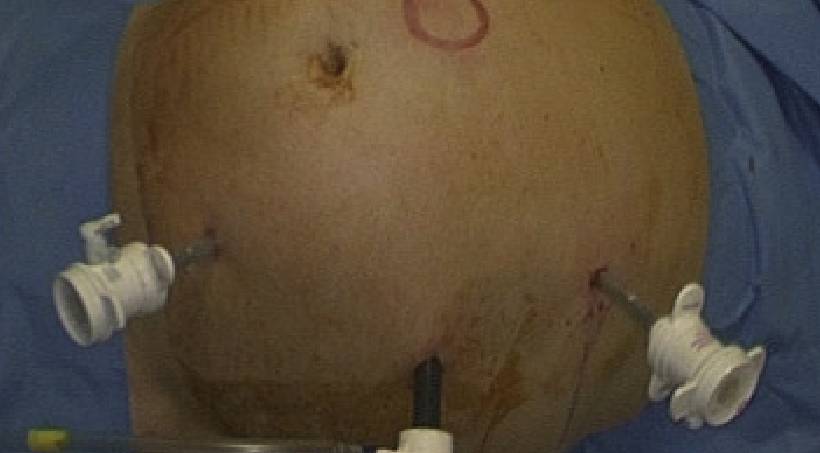
Laparoscopic Nephrectomy.
Laparoscopic nephrectomy is a minimally invasive surgical procedure used to remove a kidney. It involves small incisions through which a camera and surgical instruments are inserted, allowing for precision and quicker recovery compared to traditional surgery. This approach is often preferred for conditions requiring kidney removal, such as cancer or severe kidney infections, due to reduced postoperative pain and shorter hospital stays.
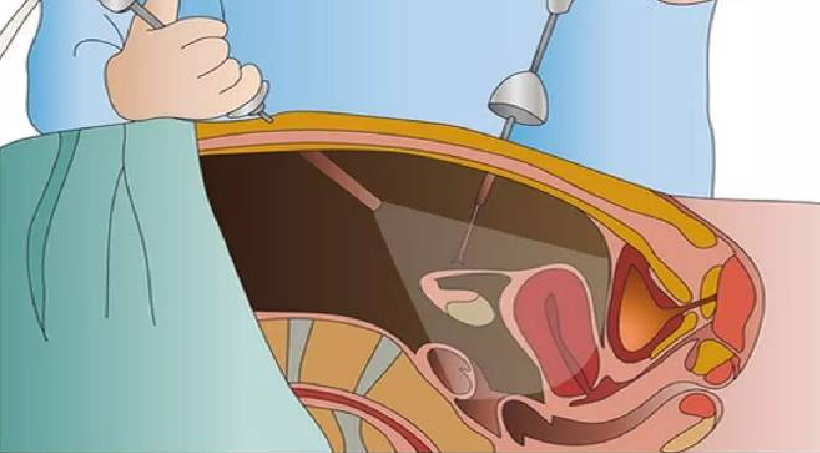
Laparoscopic Orchiopexy
Laparoscopic orchiopexy is a minimally invasive surgical procedure used to treat undescended testicles (cryptorchidism). It involves using small incisions and a laparoscope to locate and reposition the testicle into the scrotum, securing it with sutures. This approach minimizes recovery time and reduces the risk of complications compared to traditional open surgery.
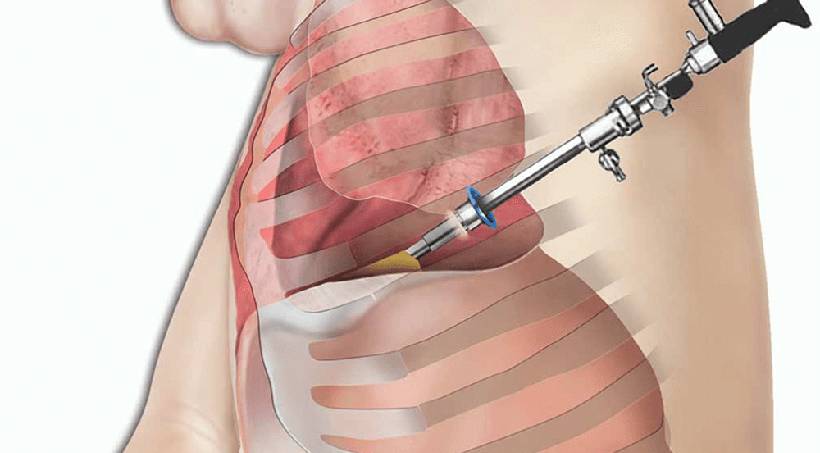
Thoracoscopic Lung Biopsy
Thoracoscopic lung biopsy is a minimally invasive procedure used to obtain small samples of lung tissue for diagnostic purposes. It involves inserting a thin, flexible tube equipped with a camera and surgical instruments through small incisions in the chest wall. This technique allows for precise biopsy sampling while minimizing postoperative pain and recovery time compared to traditional open surgery.
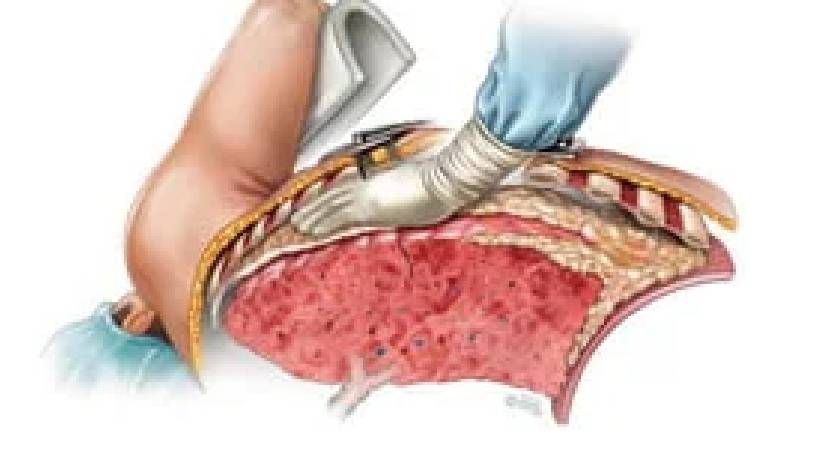
Thoracoscopic Decortication
Thoracoscopic decortication is a minimally invasive surgical procedure used to treat conditions like pleural effusion or empyema by removing thickened tissue from the lining of the lung. It involves small incisions, a camera, and specialized instruments inserted into the chest cavity to facilitate precise removal of the affected tissue, promoting quicker recovery compared to traditional open surgery.
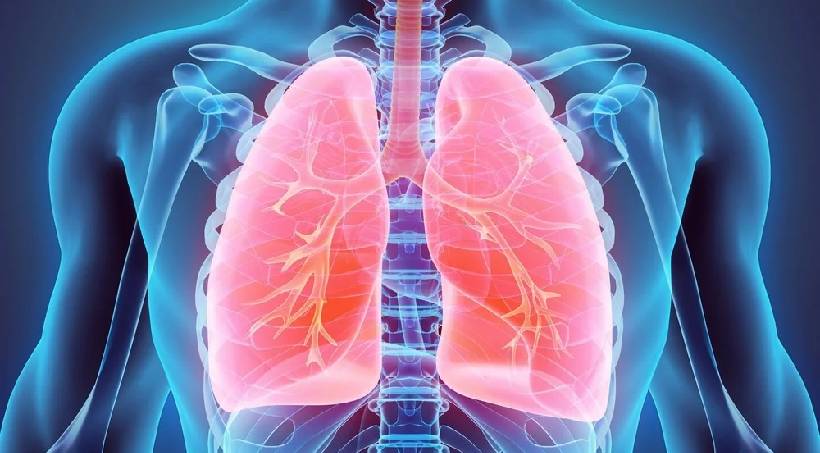
Thoracoscopic Drainage of Empyema
Thoracoscopic drainage of empyema is a minimally invasive surgical procedure used to treat infected fluid collections in the chest cavity. It involves inserting a small camera and instruments through tiny incisions to drain the pus and debris, helping to resolve the infection and promote lung re-expansion. This approach reduces recovery time and hospital stay compared to traditional open surgery, making it a preferred option for many patients with empyema.
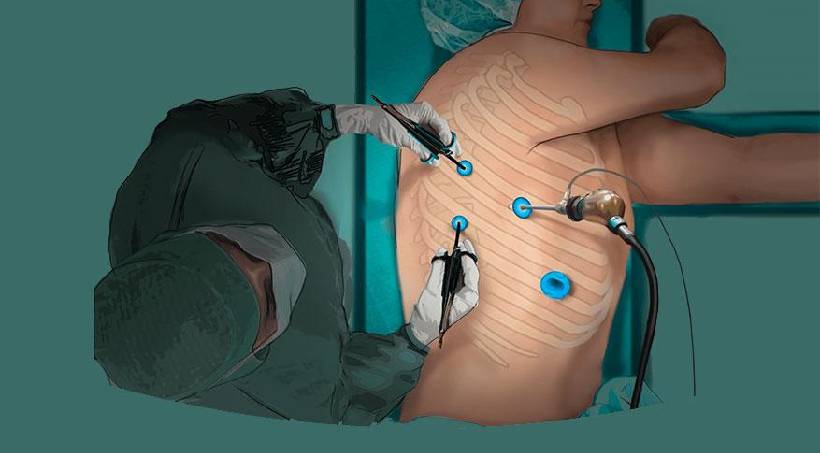
Other VATS Procedures.
Video-Assisted Thoracoscopic Surgery (VATS) encompasses various procedures beyond lobectomy, such as wedge resections, decortications, and biopsies. These minimally invasive techniques use small incisions and a camera for precise diagnosis and treatment of lung conditions. VATS procedures are preferred for their reduced pain, quicker recovery times, and lower risk of complications compared to traditional open surgeries. They are increasingly utilized in thoracic surgery for their efficiency and patient benefits.

Laparoscopic Ovarian Surgery(Cyst, PCOD,etc…)
Laparoscopic ovarian surgery is a minimally invasive procedure used to treat conditions like ovarian cysts and polycystic ovary syndrome (PCOS). It involves small incisions through which a camera and surgical instruments are inserted to remove cysts, manage PCOS symptoms, or address other ovarian issues. Benefits include shorter recovery times, reduced pain, and lower risk of complications compared to traditional surgery, making it a preferred choice for many patients.
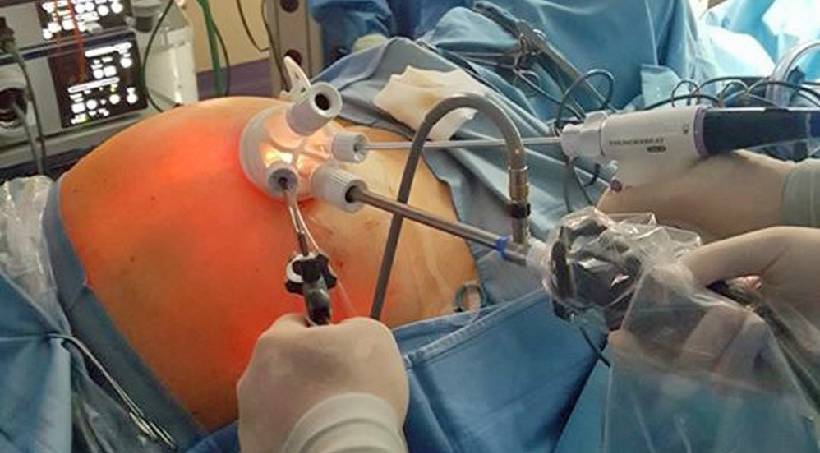
Laparoscopic mesenteric lymph node, omental , peritoneal biopsy.
Laparoscopic mesenteric lymph node, omental, and peritoneal biopsy are minimally invasive surgical procedures used to obtain tissue samples for diagnostic purposes. They involve small incisions through which specialized instruments are inserted to collect samples from these areas within the abdominal cavity. These biopsies are crucial for diagnosing conditions such as cancers or infections affecting these tissues, providing valuable insights for effective treatment planning.
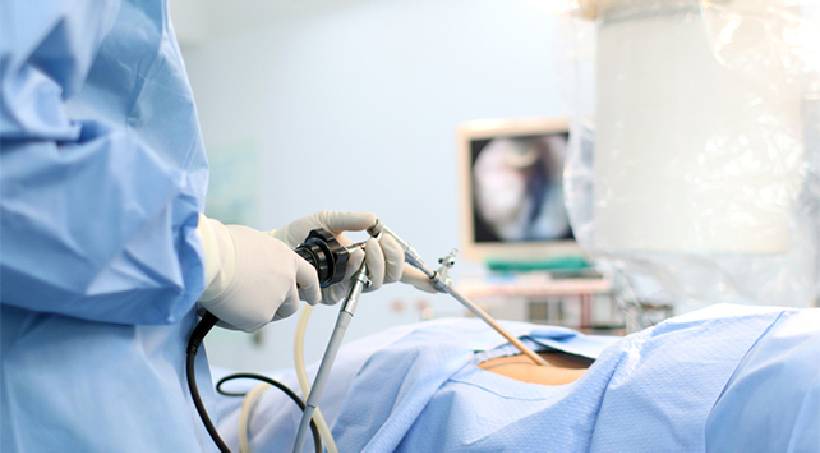
Laparoscopic Liver Hydatid Surgery.
Laparoscopic liver hydatid surgery involves minimally invasive techniques to remove hydatid cysts from the liver. It offers quicker recovery, reduced post-operative pain, and lower risk of complications compared to traditional open surgery. Surgeons use small incisions and a camera to navigate and remove cysts, ensuring thorough cyst removal while preserving healthy liver tissue. This approach is increasingly preferred for its benefits in patient outcomes and recovery times.
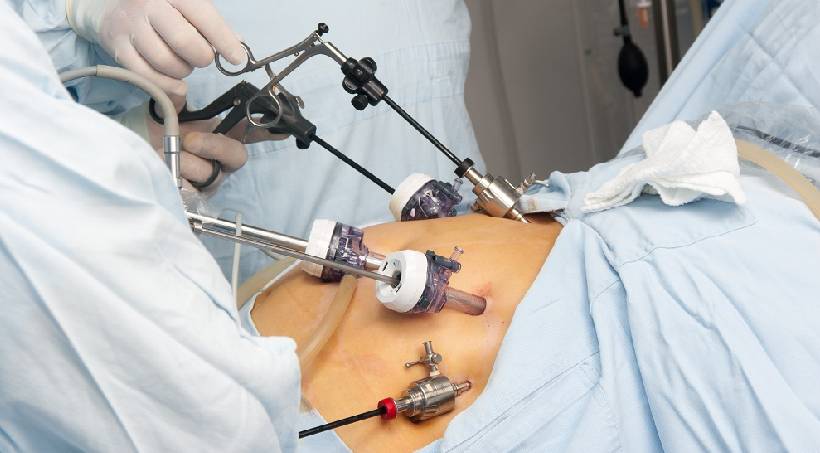
Laparoscopic Sleeve Gastrectomy.
Laparoscopic Sleeve Gastrectomy (LSG) is a minimally invasive weight-loss surgery where a large portion of the stomach is removed, leaving a smaller sleeve-shaped stomach. It restricts food intake and reduces hunger hormones, aiding significant weight loss. LSG is effective for treating obesity and related health conditions like diabetes and hypertension. It offers quicker recovery, lower complication rates, and sustainable weight loss compared to traditional methods.
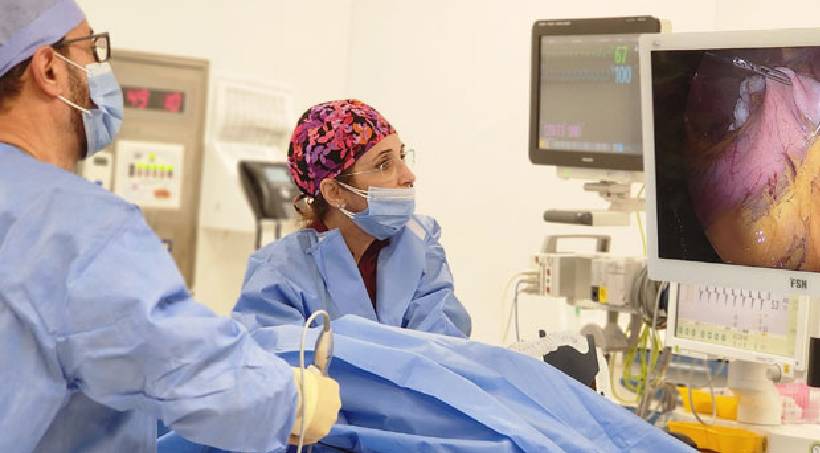
Laparoscopic Mini Gastric Bypass
Laparoscopic Mini Gastric Bypass is a minimally invasive weight-loss surgery that involves creating a small stomach pouch and bypassing a portion of the small intestine. It helps in reducing the amount of food intake and absorption, promoting weight loss. This procedure is effective for patients with severe obesity and related health issues, offering quicker recovery and fewer complications compared to traditional gastric bypass surgery.
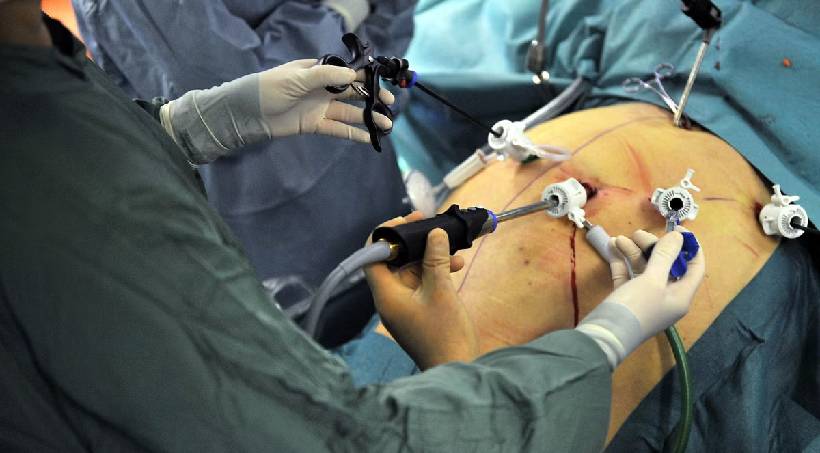
Laparoscopic RNY Gastric Bypass
Laparoscopic RNY Gastric Bypass is a minimally invasive surgical procedure used to treat severe obesity by creating a small stomach pouch and rerouting the digestive tract. It promotes weight loss by restricting food intake and reducing absorption. This method typically results in significant and sustainable weight loss, along with improvements in obesity-related health conditions. It's known for its effectiveness in helping patients achieve long-term weight loss and better quality of life post-surgery.
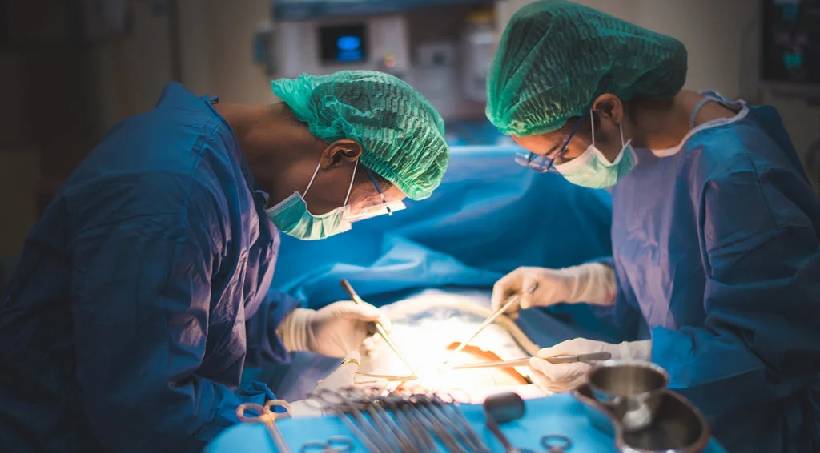
Laparoscopic Resection and Anastomosis
Laparoscopic resection and anastomosis is a minimally invasive surgical procedure used to remove a diseased portion of the intestine and reconnect healthy sections. It involves making small incisions through which a laparoscope and surgical instruments are inserted, allowing for precise operation. This technique reduces recovery time and post-operative discomfort compared to traditional open surgery, making it a preferred choice for many patients.
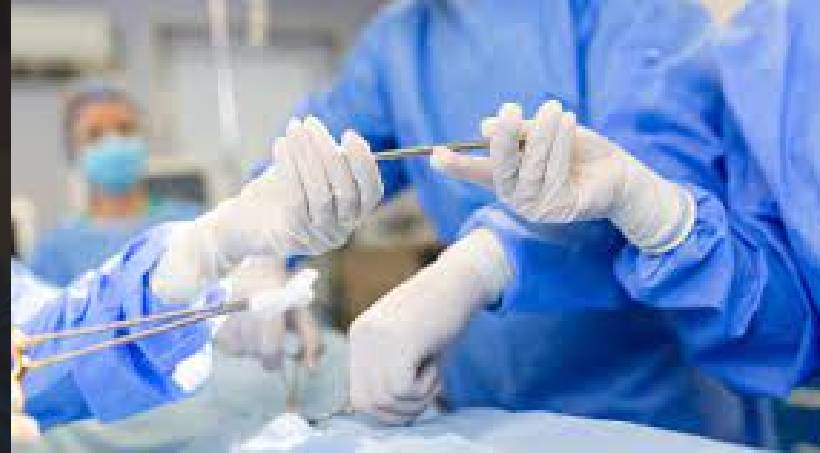
Laparoscopic Surgery for undescended Testes
Laparoscopic surgery for undescended testes involves using minimally invasive techniques to locate and bring down the testes into the scrotum. This procedure offers quicker recovery times and reduced risk of complications compared to traditional open surgery. It's often recommended for its precision in accessing and securing the testicular descent, promoting better long-term outcomes for patients.
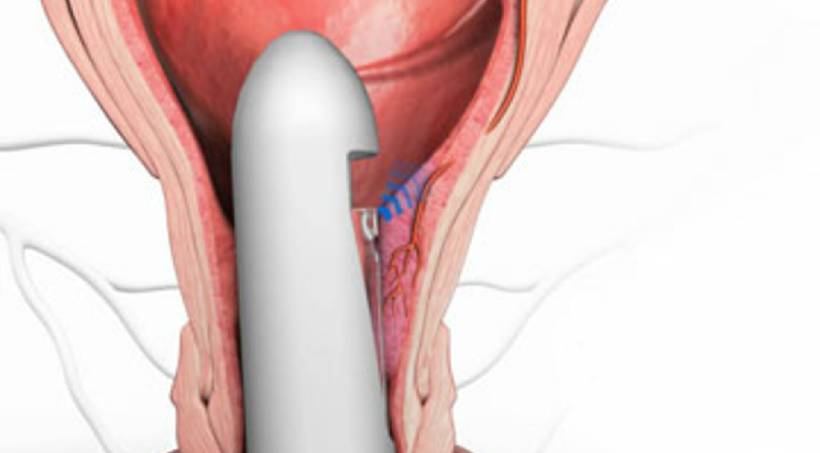
Laser Surgery in Hemorrhoids
Laser surgery for hemorrhoids, a minimally invasive procedure, uses focused light to shrink and remove swollen veins. It offers quicker recovery and less post-operative discomfort compared to traditional surgery. This method effectively targets problematic hemorrhoids with precision, reducing the need for extensive tissue removal. Consultation with a qualified surgeon can determine if laser surgery is suitable based on individual health needs and severity of symptoms.
We specialize in advanced surgery services in Nashik At Sapphire Superspeciality Clinic, ensuring patient safety and comfort at every step of the process.

